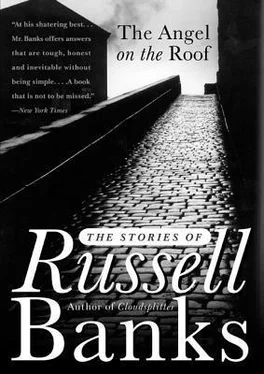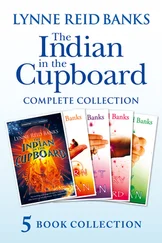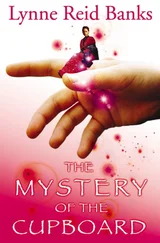Soon, the red dust would return: this was, indeed, the season of in-between. I leaned back and looked away from Gbandeh, away from Katonga, away from the continent and the planet itself. The clouds had parted, and the dark blue sky billowed overhead like a bedouin’s tent. The equator, cut from north to south by the prime meridian, crossed the sky from east to west, and beyond the lines of empire, the stars, like endless grains of desert sands, flowed in vast, uncharted waves across the universe. All night long, I perched on the roof of the old colonial warehouse, staring away from myself until dawn, and when at last I climbed down to the ground, the sky had turned milky white. The stars were gone from sight, as invisible as the equator and the time line now, and the streets and sidewalks of Gbandeh were deserted. I was alone.
For my father, the idea of loneliness was early on separated from the idea of solitude, a condition imposed on him by geography. Or it may be something he picked up from his father. Regardless, it’s a distinction that served him well. It enabled him to be literally fearless in the face of constant loneliness, and later on, when the pressure of geography had been removed, it explained to him his continuing solitude.
He played hockey, of course. Like almost all Canadian boys, even solitaries. A tough defenseman with great maneuverability, but not too much speed, he had the will, size, and ability, but especially the will, to break up a three-on-one rush for the goal by rapping one kid with his stick (up under the jaw, usually), taking out the second with a hard check to the kidneys, and the third by hurling his entire body across the oncoming skater’s path, slapping wildly with his stick at the skittering puck, his back, slammed against the third boy’s rush, blocking any view of the puck, the goal, and the kid’s own feet, bringing the kid finally crashing down to the ice as, at the same time, his own stick discovered the puck and punched it back to one of his grinning, slightly embarrassed, slightly envious teammates.
Hockey, especially as played by Canadian schoolboys, is a violent game. But the violence usually lies dormant until the game is played by older, heavier, more motivated, and darkly competitive adolescents. Until then, a boy’s violence is ordinarily a clumsy, harmless imitation of what a man-sized player can do gracefully with harm. Hundred-pound kids skating like the wind, barking and yelling at each other in French or Nova Scotia English, growling through red, contorted faces, bumping theatrically against one another, they only rarely, and then almost always by accident, enact violence upon one another. For them, the game, insofar as it is violent, is pure theater, with themselves, their opponents, their own friends, and their opponents’ friends as audience.
Whether for my father it was merely an extreme version of this theater, I couldn’t say, but I do know that for others his violence was real enough (I’ve been told by those who knew him then) and that consequently, before he was twelve, he had earned a reputation as a hatchet man on the ponds and public rinks of Halifax, which is very unusual. Also, until one is old enough to play in the tough, even brutal, Junior League, such a reputation is useless, is possibly even a liability.
To understand him, I try to recall how it was for me at that age, because as a skater I had about the same ability and lack of it that he had — maneuverable, with quick hands and feet, large for my age, but not very fast and with a weak slap shot no amount of solitary, early morning practice could improve. I could never combine the hard charge for the net with the sudden shot from fifteen feet out that sent the puck like a rifle slug about eight inches off the ice all the way without once touching down past the goalie’s dropping glove and lifting stick and into the net with a neat, quick, kissing thud.
Like my father, I was a defenseman, and to increase my value as a defenseman, I, too, relied on the will to extremity that I knew the other players neither possessed nor expected to encounter in anyone else. Though we expected each other to imitate the older players, it was merely to mimic their threats and gestures, the textures of their violence. Consequently, anyone willing at that age to go all the way, unhesitatingly checking, tripping, body-blocking, rapping hands, heads, and legs with his hockey stick, anyone willing actually to be violent, had the considerable advantage of surprise going for him.
Though I’m not sure why I should happen to seize onto how as a child my father, or for that matter I myself, played hockey, it is certain that, for a child raised in the northeastern United States and southern Canadian provinces, hockey and ice skating in general are of surprising emotional significance, combining as they do, so early and for so long, social and private experience. Also, they provide an arena in which other people and an intense physical environment are positioned precisely to confront one’s young and relatively untested, unknown body. As evidence of the staying power the experience holds, this past winter I’ve walked down to the pond in the meadow in front of my house perhaps as many as eight or nine times, where, lacing on my skates, pushing off, gliding in slow, rhythmic ovals around the pond, alone and out of sight of the house, my mind backtracks in time, until, before I am aware of it, my physical responses ( to the glassy smoothness of the ice, a slight pinch of the toe in the left skate, ears, nose, and chin crystallizing in the breeze caused by my body’s swift movement through still, cold air… ) and the loose flow of my fantasies ( of suddenly breaking free of a tie-up at the boards, he’s got the puck, he’s going all the way in, the goaltender’s ready for him … and, whap! a slapper, and the goaltender goes down to his right for the puck, too late, and HE SCORES! glides humbly, suddenly relaxed, past the net, shakes loose clumps of ice shavings from his skate blades, moves like a gentle bear down the ice toward his own goal and his jubilant teammates… ), at times like that, when I’m skating alone, my physical responses and my fantasies are coming straight out of childhood.
I’ve noticed in men from the Midwest a certain glazed, timeless look drift over their faces when they’re bouncing and heaving a basketball around and through a hoop tacked to the side of their own or a neighbor’s garage. For Southerners, at least the ones I have known, it happens around hound dogs, shotguns, and rolling, tangled, half-cleared farmland in fall and early winter. I suspect at these times they’re making the same restful, return trip that I make when skating on the pond down in front of my house. Besides being a connection to one’s childhood, a brief slip backwards into the subjectivity of one’s ordinarily objectified past, it’s a connection with other men, as well. Including my father, I suppose.
It’s never been clear to me whether for my father the realities of ice and dreamlike motion across its surface evoked images of family and origin, as they do for me. I don’t think my grandfather even knew how to skate, and I always assumed that my father had to learn to skate on his own, with boys from the neighborhood. But because when I was a child we lived far from anything even vaguely resembling a neighborhood, I was allowed to learn to skate with my father on Saturday and Sunday afternoons the winter I turned six. It was an event, formally announced as such. One Friday night in November, my father simply said, “This winter I’m going to put that boy up on skates.”
My mother chuckled that I wasn’t old enough. They were in the kitchen, after supper. My mother was sitting at the table over the clutter of dishes, resting a few moments before moving to the sink to clean up her kitchen and utensils one more time. She was smoking a cigarette and drinking coffee. My father was restless that night, pacing, stopping occasionally to peer out the window into the frosty darkness. My brother and I were playing on the floor like small dogs, nipping and yipping, imagining tails. At the sound of my name, I stopped playing and sat attentively, a human again. My brother, two years younger, went on barking and growling.
Читать дальше












